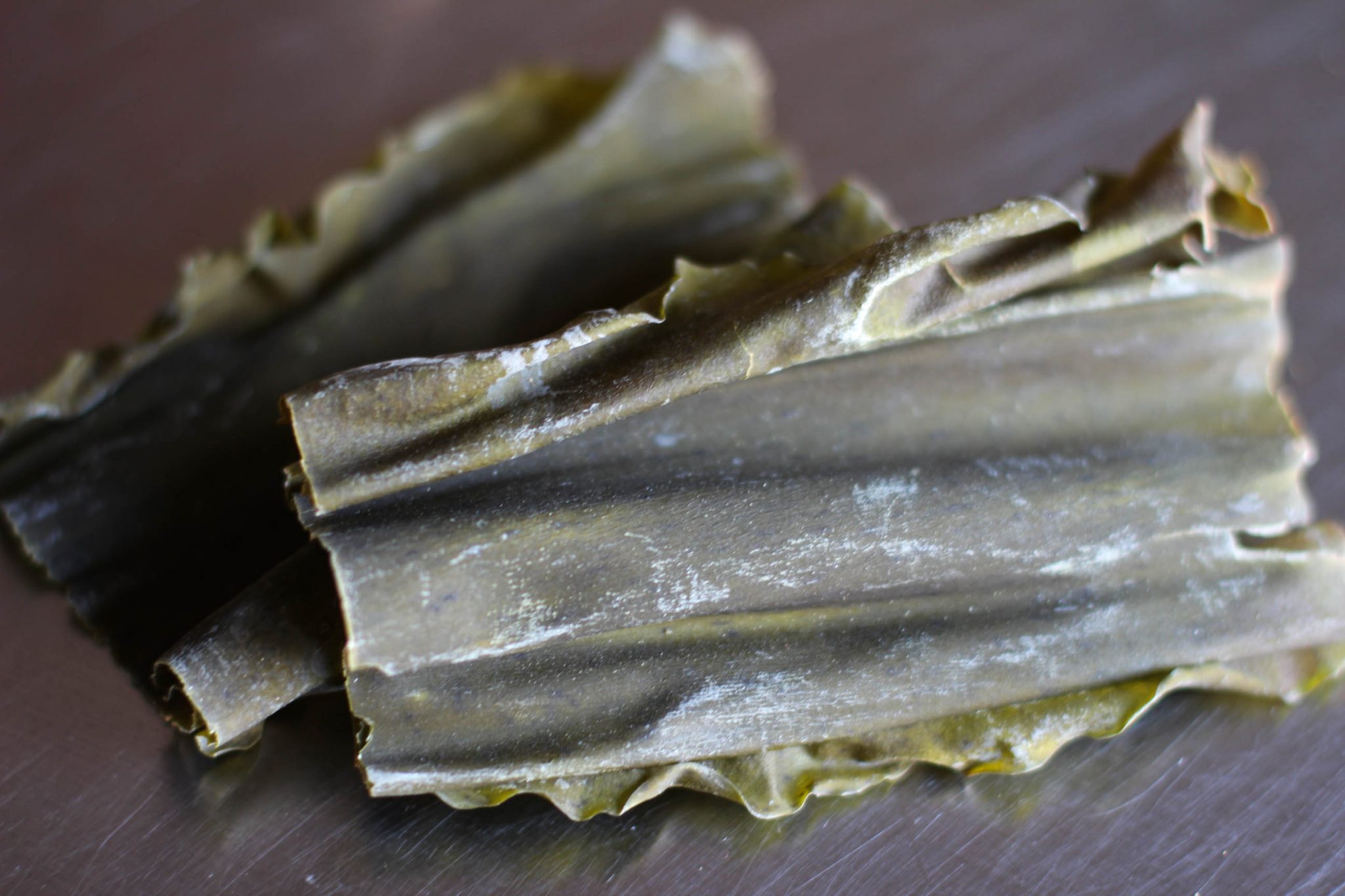
Kombu is a popular ingredient in Japanese cuisine that has gained increasing popularity in the Western world due to its numerous health benefits and versatile culinary uses. This edible kelp belongs to the family of brown algae and is commonly used to enhance the umami flavor in soups, stews, and broths.
Originating from the nutrient-rich waters of the Pacific Ocean, kombu has been consumed in Japan for centuries, prized for its unique taste and nutritional value. In recent years, it has gained recognition for its high mineral content, including iodine, calcium, iron, and potassium, as well as its abundance of vitamins and antioxidants.
In this article, we will explore 15 fascinating facts about kombu, ranging from its cultivation and harvesting methods to its culinary uses and health benefits. Whether you’re a seasoned chef or just starting to experiment with international flavors, these facts will shed light on the wonders of this remarkable seaweed.
Key Takeaways:
- Kombu is a highly nutritious type of edible kelp commonly used in Japanese cuisine. It’s rich in vitamins and minerals, and can be used as a natural tenderizer for tough meats.
- Kombu is not only delicious but also eco-friendly, as it’s a sustainable food source with detoxifying properties. It’s a versatile ingredient that can be used in various culinary creations.
Kombu is a type of edible kelp
Kombu is a variety of seaweed that belongs to the kelp family. It is widely consumed in Asian countries, especially in Japan. The scientific name for kombu is Laminaria japonica.
Kombu is highly nutritious
Kombu is rich in vitamins and minerals, including iodine, calcium, iron, and magnesium. It is also a good source of dietary fiber and contains antioxidants that may have health benefits.
It is commonly used in Japanese cuisine
Kombu is a staple ingredient in many Japanese dishes, such as miso soup, sushi, and dashi broth. Its unique umami flavor enhances the taste of the dishes it is used in.
Kombu is known for its health benefits
Regular consumption of kombu may help support thyroid function due to its high iodine content. It is also believed to have anti-inflammatory properties and can aid in digestion.
It is used as a natural food additive
Kombu is sometimes used as a natural alternative to monosodium glutamate (MSG) in food preparation. It adds flavor and enhances the taste of various dishes without the need for artificial additives.
Kombu is harvested from underwater forests
Kombu is typically harvested from underwater forests or kelp forests that grow along the coasts of Japan and other countries with suitable marine environments.
It is dried before consumption
After harvesting, kombu is washed and dried to remove excess moisture. It is then packaged and sold in dried form, which can be rehydrated before use.
Kombu can be used as a natural tenderizer
Kombu contains enzymes that can help break down proteins, making it a great natural tenderizer for tough meats. Adding a piece of kombu to your meat marinade can help make it more tender and flavorful.
It is often used to make vegetarian and vegan dishes
Due to its rich umami flavor and nutritional benefits, kombu is a popular ingredient in vegetarian and vegan dishes. It is often used to add depth and complexity to plant-based recipes.
Kombu has a long shelf life
Unlike fresh produce, dried kombu has a long shelf life and can be stored for months or even years without losing its flavor or nutritional value. This makes it a convenient pantry staple.
It is believed to have detoxifying properties
Kombu contains alginic acid, a compound that may help remove heavy metals and toxins from the body. This is why it is sometimes referred to as a natural detoxifier.
Kombu can be used for culinary purposes beyond Japanese cuisine
Although most commonly associated with Japanese cuisine, kombu can also be incorporated into various other dishes from different culinary traditions. Its versatility allows it to be used in soups, stews, salads, and more.
It is an eco-friendly food source
Kombu is considered a sustainable food source as it grows rapidly and does not require freshwater or fertilizers to thrive. Its cultivation helps promote marine biodiversity and reduce the carbon footprint of food production.
Kombu can be used as a natural seasoning
In addition to enhancing the flavor of dishes, kombu can also be used as a natural seasoning. It is often used to make stock or broth, which serves as a base for many recipes.
It is a versatile ingredient in the kitchen
Kombu can be used in various forms, such as whole strips, flakes, or powdered form. This versatility makes it easy to incorporate into a wide range of culinary creations.
Conclusion
Kombu, a popular ingredient in Japanese cuisine, is not only delicious but also packed with numerous health benefits. From its high mineral content to its ability to enhance umami flavors, kombu offers a range of advantages for those who incorporate it into their diet. Whether you’re a seaweed enthusiast or a food lover looking to experiment with new flavors, exploring kombu can be an exciting culinary journey. So, next time you’re at the grocery store, don’t forget to grab some kombu and unlock the potential of this versatile and nutritious ingredient.
FAQs
1. What is kombu?
Kombu is a type of edible kelp commonly used in Japanese cooking. It is known for its distinctive flavor and rich umami taste.
2. How is kombu different from other seaweeds?
Kombu stands out from other seaweeds due to its unique taste and texture. It has a naturally occurring glutamic acid, which gives it a strong umami flavor.
3. What are the health benefits of consuming kombu?
Kombu is an excellent source of iodine, which is crucial for thyroid health. It is also rich in vitamins, minerals, and antioxidants that contribute to overall well-being.
4. How can I incorporate kombu into my daily diet?
Kombu can be added to soups, stews, stocks, and broths to enhance their flavor. It can also be used as a wrap for sushi or as a topping for salads and rice dishes.
5. Where can I buy kombu?
Kombu is widely available in Asian grocery stores, health food stores, and online retailers. Look for dried kombu sheets or flakes for easy use.
6. Are there any precautions when consuming kombu?
While kombu is generally safe for consumption, it is essential not to consume excessive amounts due to its high iodine content. It’s best to consult with a healthcare professional if you have any specific concerns or dietary restrictions.
Kombu's rich umami flavor and nutritional benefits make it a fascinating ingredient. Dive deeper into the world of sea vegetables by exploring seaweed facts. Discover how kombu is used in Japanese cuisine to create savory dishes like dashi. For those craving a delicious, umami-packed meal, check out our article on umami burger nutrition to learn more about this trendy and flavorful option. Whether you're a seasoned chef or just starting to explore new ingredients, kombu and other sea vegetables offer endless possibilities for creating tasty, nutritious meals.
Was this page helpful?
Our commitment to delivering trustworthy and engaging content is at the heart of what we do. Each fact on our site is contributed by real users like you, bringing a wealth of diverse insights and information. To ensure the highest standards of accuracy and reliability, our dedicated editors meticulously review each submission. This process guarantees that the facts we share are not only fascinating but also credible. Trust in our commitment to quality and authenticity as you explore and learn with us.


